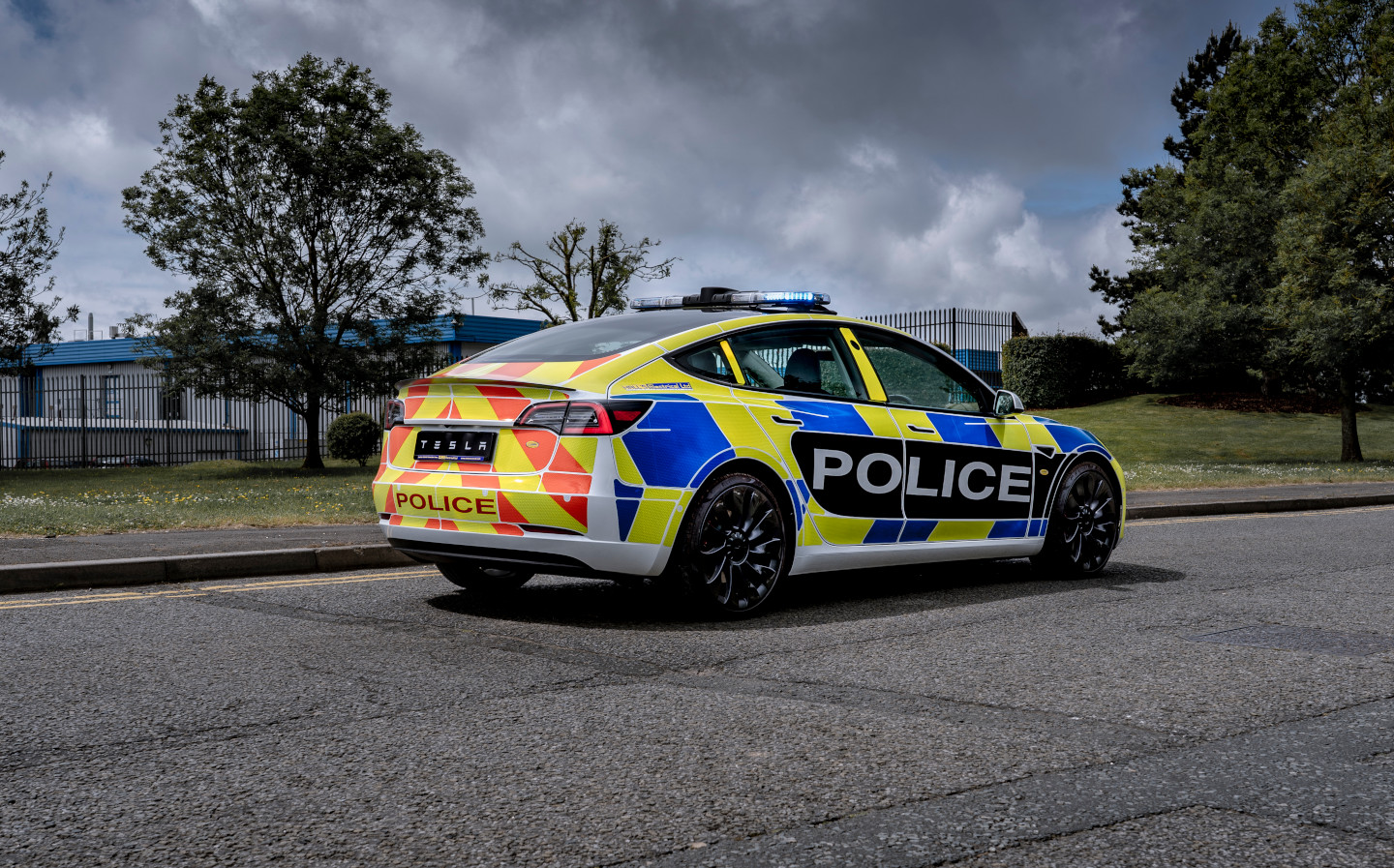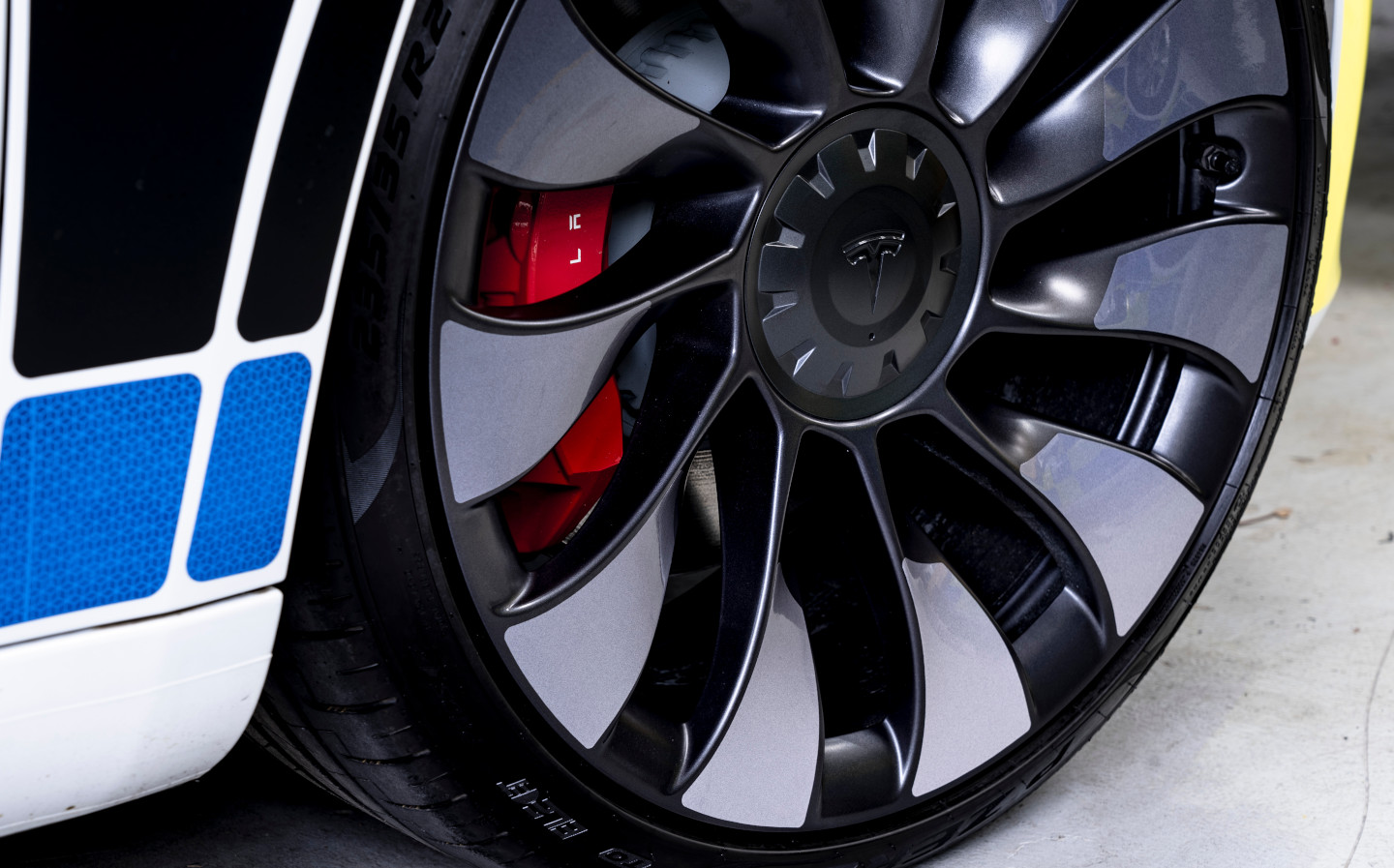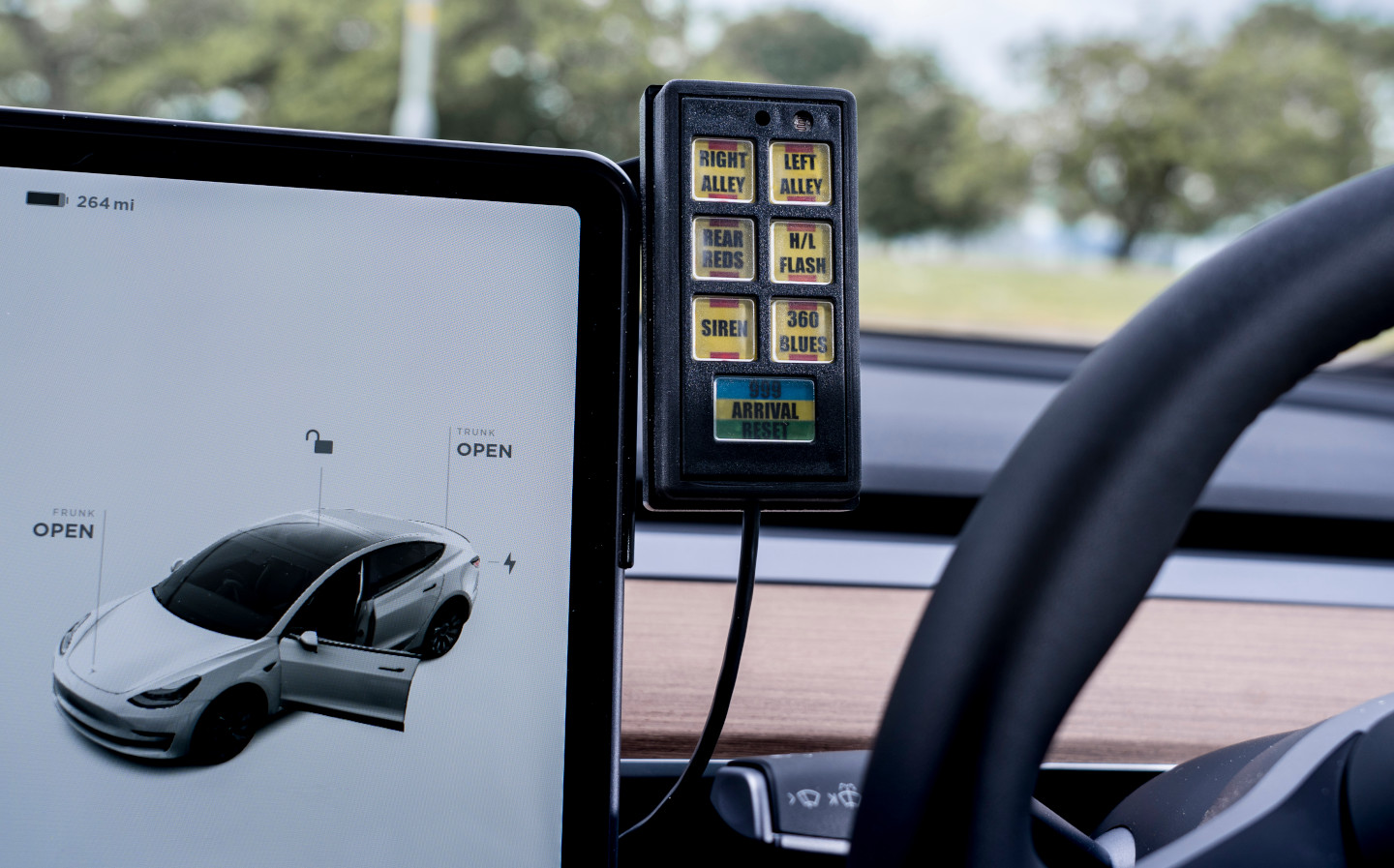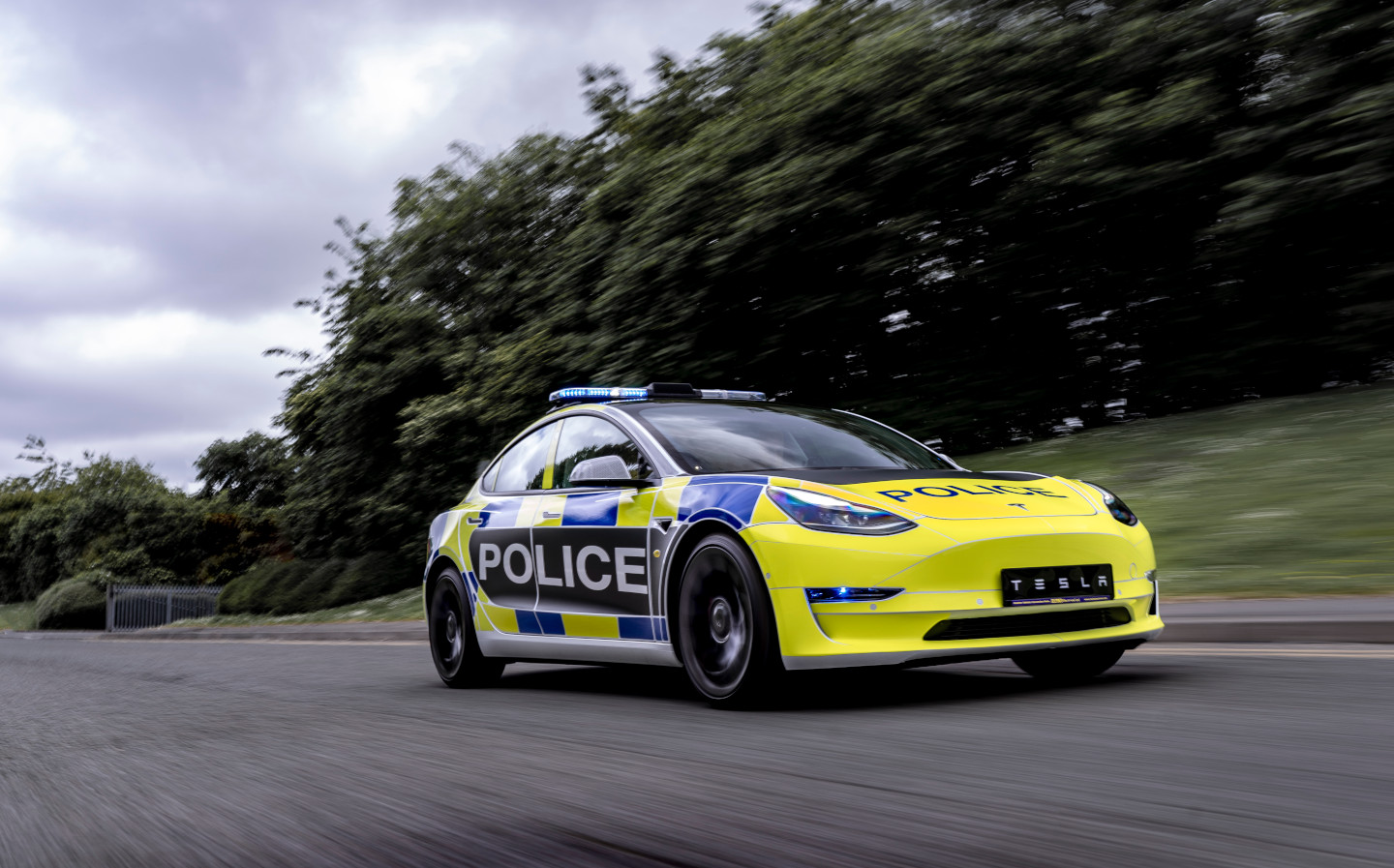Tesla Model 3 police car hits UK roads for emergency response trials
Car maker claims uptake would save emergency services money and improve environmental credentials
TESLA has created an emergency response Model 3 that will be tested by UK police, fire brigades and other emergency services.
The trial vehicle is intended to help emergency services cut their emissions as part of the government’s Road to Zero strategy, which aims to reduce the emissions from road transport.
As part of the strategy, which was published in July 2018, the emergency services are aiming to move to an entirely electric fleet by 2030.
The UK government has said that a quarter of its central fleet will be ultra-low emission by 2022, with that number set to increase to 100% by 2030, when the ban on the sale of new petrol and diesel cars will come into effect.

A freedom of information request submitted by Air Quality News last year found that just 1% of the Department for Transport’s 1,860-strong fleet is electric, while 71% was diesel-powered.
Tesla says that it believes the Model 3 — its entry level car — is perfect for upping the environmental credentials of public service vehicles through use by the police and other emergency services.
The Long Range AWD model can travel 360 miles between charges, it points out, though high-speed pursuits will inevitably reduce that range considerably. It can be recharged rapidly at the latest 250kW Tesla Superchargers, though, adding up to 75 miles of charge in 5 minutes at rates of up to 1,000 miles per hour.
The Model 3 Long Range is certainly not short of performance, capable of accelerating from 0-60mph in 4.2sec — the same as a new BMW M3 sports saloon. And with all-wheel drive it is well suited to coping with wet and slippery conditions. The dual motor Model 3 Performance version is even more rapid, capable of hitting 60mph from standstill in 3.1sec.
Road cops should be well protected, too: Tesla points out that the Model 3 has been given a five-star rating by the European New Car Assessment Programme (Euro NCAP), with the organisation awarding the car a 96% score for adult occupant safety and a 74% score for vulnerable road user safety.

Despite the Model 3 Long Range’s hefty £48,490 price tag, it will save the emergency services money, the car maker claims, due to minimal maintenance needs and the cost savings of charging a car with electricity rather than petrol or diesel. Between 2011 and 2014 police forces spent £128m on repairing and maintaining their vehicle fleets — enough money to buy around 2,940 Long Range Model 3s at RRP.
Electric cars tend to need less maintenance than internal combustion engine cars due to the fact that they have far fewer moving parts — however some components, like tyres, can wear out more quickly. A 2018 study found that, over a three-year period, electric cars were cheaper to maintain by 23%.

If the emergency services in the UK were to add the Model 3 to its fleet of vehicles, it would find itself in the company of a number of American and European police forces who have done the same. Forces in Indiana, Connecticut, New York and California all have Teslas in their fleets, and police in Westport, Connecticut, claimed that they recouped the $15,000 (£10,600) price difference between the standard Ford Explorer police vehicle and the Model 3 within a year, and would save enough within four years to buy another Tesla.
Police in Switzerland have opted to use the Model X as a police vehicle, much to the glee of Tesla CEO Elon Musk:
The Swiss police are smart. Electricity vs diesel & maintenance more than make up for purchase price diff. Plus, the bad guys will def not escape. That’s worth a lot … https://t.co/fE6zmM8C3F
— Elon Musk, the 2nd (@elonmusk) March 22, 2018
Police in the UK have already begun the process of adding electric cars to their fleet. Neon-coloured BMW i3s have become a familiar sight on the roads of the UK’s cities, while the Metropolitan police also has a fleet of Nissan Leafs.
Tweet to @KieranAhuja Follow @KieranAhuja
- After reading that Tesla has created a Model 3 emergency response car for police trials, you might be interested in reading that a demonstration of the new Model S’ steering yoke has driven criticism on social media.
- Elon Musk recently cancelled the 1,100hp Tesla Model S Plaid+.
- Last year Nissan unveiled the Re-Leaf, an emergency response vehicle with a mobile power supply.





